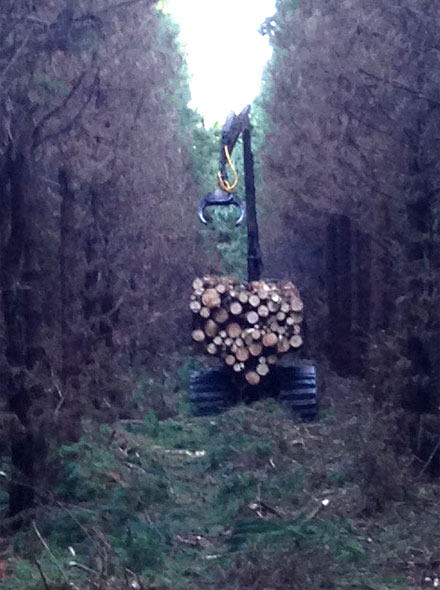Claims that forestry destroys local communities and jobs are refuted in a PricewaterhouseCooper (PwC) report. The report also indicates forestry has on average a larger economic value per hectare than pastoral farming. The report, titled The Economic Impact of Forestry in New Zealand, was produced for the Ministry of Primary Industries and data in it is based on 2018 figures. Source: Gisborne Herald
Business analysts PwC compared the economic and employment output of forestry with sheep and beef farming, and also looked at carbon forestry and a mix of land use.
NZ Forest Owners Association (NZFOA) said the report was a clear and objective refutation of widespread statements in the media recently claiming forestry destroys local communities and jobs.
“PwC has found forestry makes more than double a value chain impact than sheep and beef farming in both value-add by land use and also in providing employment,” the forest owners said.
Farmers have argued for some time that their industry employs more people and is more valuable to the economy than forestry, and that increased forestry would reduce employment in rural communities.
Concern has also been voiced around the sale of farmland to forestry interests.
The PwC report states: “From the modelling we have done as part of this report, we conclude that on average the forestry value chain has a larger economic impact per hectare than the sheep and beef value chain.”
The key challenge in the comparison between forestry and farming was the “dramatic” difference in production cycles of each type of land — annual for sheep and beef; multi-decade for forestry,” the report says.
A statement from the NZFOA says graphs in the report are “overwhelmingly clear” that forestry is a far better employer and income earner than sheep and beef on the same area of land — “even without considering carbon prices”.
“The report indicates restricting conversion to forestry is destructive and not beneficial to local communities, which is something forestry companies have been saying for ages . . . now it is confirmed.”
The report also says the Overseas Investment Office has not approved any sale of New Zealand farmland for carbon farming.
“Carbon farming may be the only feasible use of some highly erosion-prone land not suitable for farming. Native trees will replace the pines over time,” say the forest owners.
On carbon farming the report summary indicates that with carbon unit prices at or in the range of $25, permanent carbon forestry can offer comparable returns to plantation forestry . . . “and both can offer superior returns to sheep and beef farming”.
“The GDP (gross domestic product) impacts, however, are materially different,” the report states.
“A move from plantation to permanent carbon forestry significantly reduces the GDP impacts and reduces employment impacts to negligible levels.
“This is the natural effect of converting land to a use that is not economically productive.”
Key conclusions from the report include a financial comparison of the relative attractiveness of plantation forestry, permanent carbon forestry and sheep and beef farming.
“That comparison suggests that for some land types (in this case hard hill country), forestry generally offers greater returns when enhanced by carbon unit revenue.
“Plantation forestry and permanent carbon forestry offer comparable returns over the long term, but significantly different economic impacts, with permanent carbon forestry having comparatively low impacts, compared to sheep and beef farming and plantation forestry.”
Eastland Wood Council said the Government did not intend for productive land to be put into permanent tree cover, but the economics of climate change had caused some landowners to make those decisions.
“The Government’s ability to auction carbon units also allows them to keep a lid on carbon prices. The Government does not want the carbon unit price to go to $100.
“The Government review on the Emissions Trading Scheme proposes to bring in averaging accounting for carbon, and all the benefits from averaging accounting are gained by those who intend to harvest their forests as normal rotational forests,” the EWC said.
“The vast majority of landowners interested in carbon are interested in either carbon averaging (i.e. harvesting) or are continuing to harvest forests under the traditional carbon stock change accounting approach.
“To date, landowner uptake of the PFSI (Permanent Forest Sink Initiative) and its proposed successor the Permanent Post 1989 scheme is very limited.”
Eastland Wood Council chief executive Kim Holland said the council looked forward to Gisborne District Council tabling and considering the PwC report in its next Long Term Plan.






